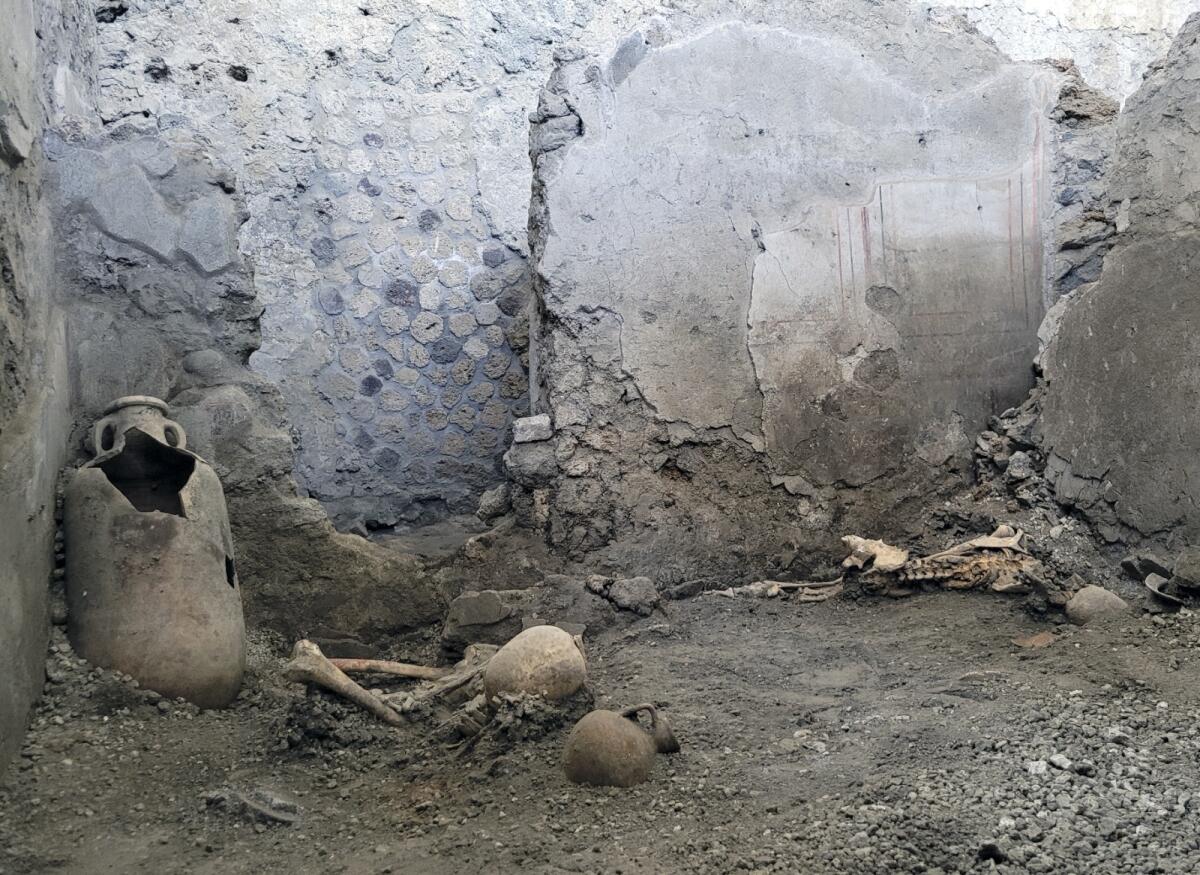Death by earthquake: Pompeii skeletons show Vesuvius wasn’t the only killer

- Share via
MILAN, Italy — The discovery of two skeletons beneath a collapsed wall at the Pompeii archaeological site points to deaths by powerful earthquakes that accompanied the devastating eruption of Mt. Vesuvius in AD 79, in addition to the victims killed by volcanic ash and gas, experts said this week.
The two skeletons, believed to belong to men who were at least 55 years old, were found in the Casti Amanti, or House of Chaste Lovers, beneath a wall that collapsed before the area was covered in volcanic material.
The area was probably undergoing reconstruction work at the time of Vesuvius’ eruption, following an earthquake a few days earlier.
“In recent years, we have realized there were violent, powerful seismic events that were happening at the time of the eruption,” said Gabriel Zuchtriegel, director of the Pompeii Archaeological Park.
New techniques and methodology “allow us to understand better the inferno that in two days completely destroyed the city of Pompeii, killing many inhabitants,” he added, making it possible to determine the dynamic of deaths down to the final seconds.
More than 1,300 victims have been found at the site south of Naples over the last 250 years.
More to Read
Sign up for Essential California
The most important California stories and recommendations in your inbox every morning.
You may occasionally receive promotional content from the Los Angeles Times.








